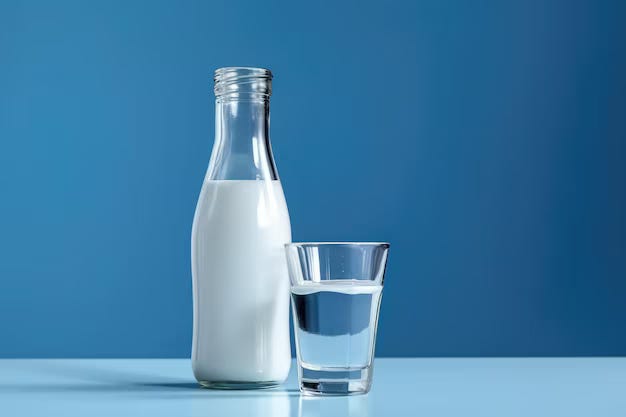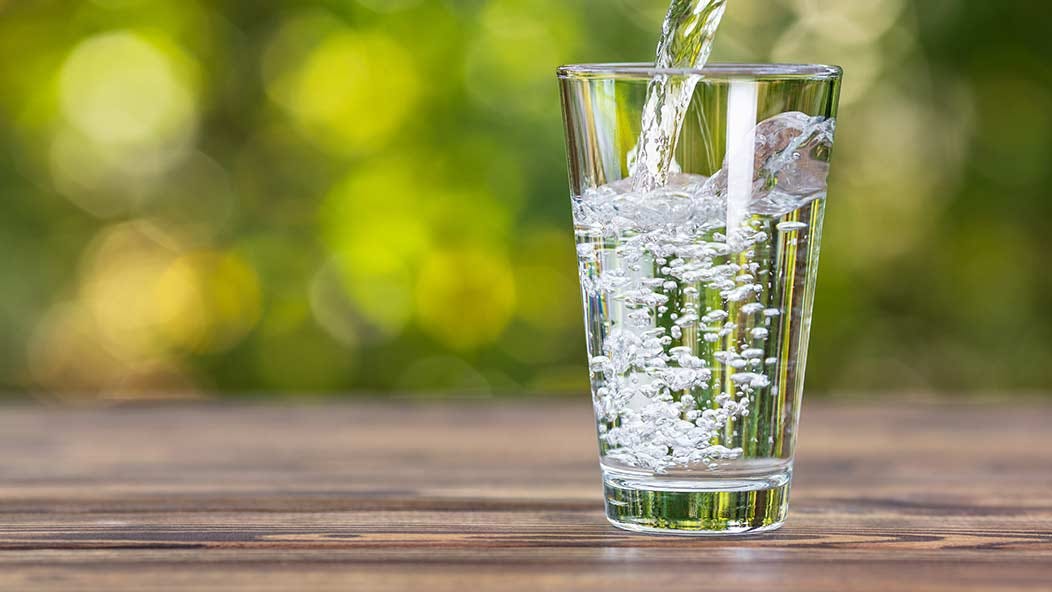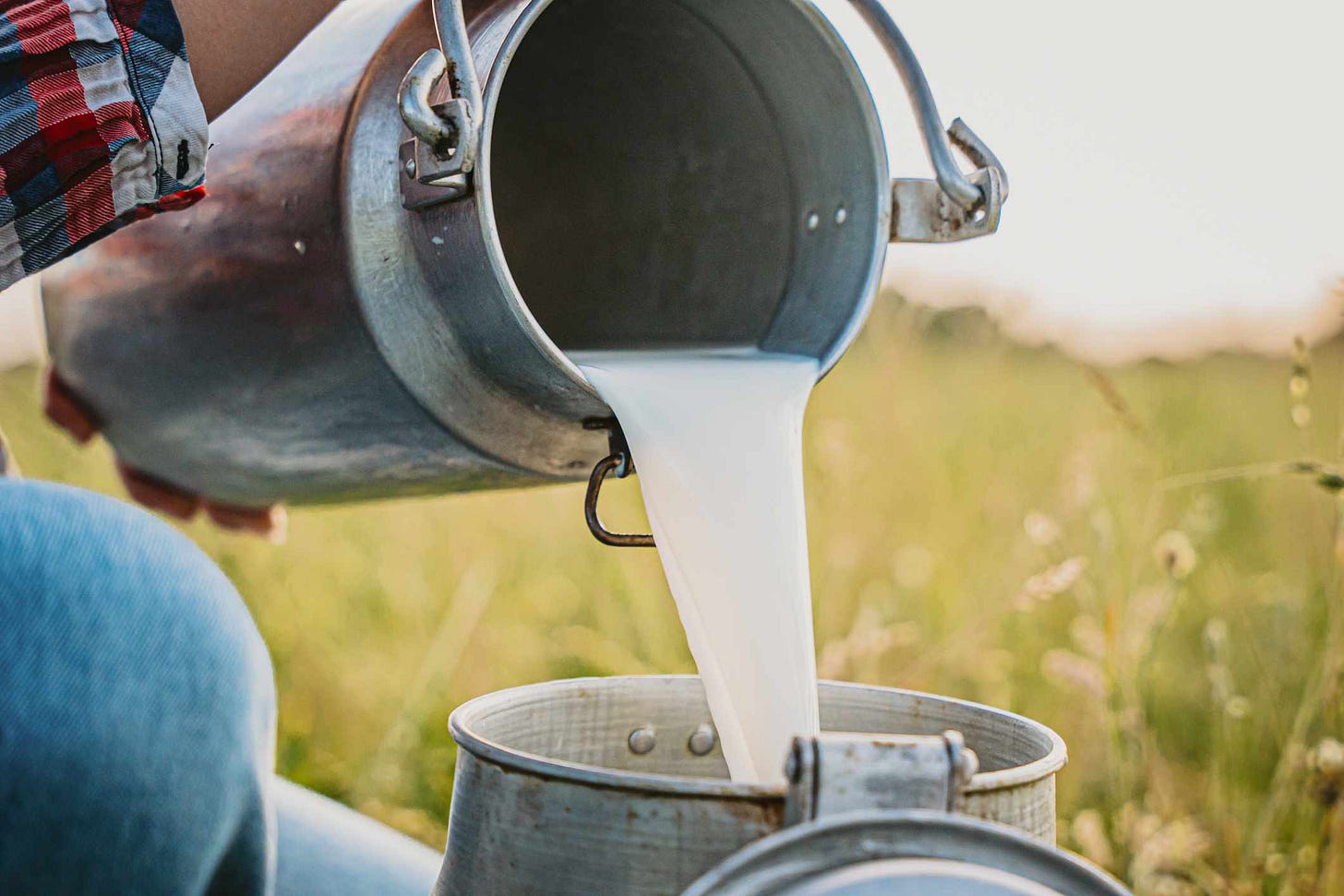"Milk vs. Water: The Surprising Hydration Face-Off"
Deep dive to decide which of the two is better for hydration
You may have never heard of some type of discourse regarding whether milk or water is better for you when hydrating, If I am to guess what you’re thinking right now, in regards to this question, you would probably say water, right? Well… remain locked in, as this piece from my newsletter will look to settle the score between these two and decide which is better when it comes to hydration.
Hydration
As we know, it is very important to remain hydrated because when we are dehydrated we can develop symptoms such as headaches, dry mouth, sleepiness, heatstroke as well as more serious health problems like problems with our heart, kidney, brain and more.
In times today, vast amounts of populous are said to be dehydrated. This means that those people suffering from dehydration will be suffering from the symptoms listed above and more.
As you may well know, we are told to drink untold amounts of water, ranging from 5 glasses a day, to 8 or 9 glasses a day and more in some cases. This derived from different sources explaining to us that water is the most hydrating drink on the planet. However, is this really the truth? Are there not other sources out there which may hydrate us better than water? What I will be presenting to you today may come as a bit of shock to you!
Why is hydration so important?
To briefly touch upon hydration, I must explain to you why it is important to remain hydrated as I have already explained to you the impacts of being dehydrated.
Temperature Regulation
When you are hydrated, your body is able to deal with higher body temperatures, especially when it comes to physical activity (along with physical activity in hot/warm climates/conditions). Remaining hydrated means that your body is much more capable of dealing with heat strokes. Dehydration stops the body from producing sweat, this sweat helps to cool yourself.
Skin Health
Being hydrated helps to maintain and improve the elasticity of your skin. This gives you a younger appearance and makes your skin look more smooth. It also reduces the formation of wrinkles.
Detoxification
Staying hydrated helps your kidneys to filter out toxins which is very important for your vital organs to remain in tip-top condition. Furthermore, hydration also leads to prevention of kidney stones.
Physical Performance
Optimal amounts of fluids that help to keep you hydrated, help to regulate your body temperature, improve your blood circulation, and helps with preventing your joints from stiffening. Hydration also prevents fatigue and gives you a faster recovery.
Cognitive Function
Being hydrated inhibits your concentration, problem-solving and your short-term memory. Being hydrated helps to improve your mood, being dehydrated can lead to you being anxious and stressed. This leads onto the final point where staying hydrated improves your sleep quality/quality of sleep.
Can you drink too much water?
This may come as a surprise to some of you, but the simple answer is…yes.
Drinking too much water cam dilute the sodium levels in your blood, this can lead to:
Kidney Stress
Low Sodium Levels
Increased Urination
Swelling
Disruption of Electrolyte Balance
The amount of water that is too much, varies from person to person depending on body mass/size of the individual.
What is milk made up of?
Milk is made up of water (about 87%), fat (about 3%), protein, lactose as well as vitamins and minerals. The important factor you must take from this is the vitamin and mineral content that milk has. Milk contains essential nutrients such as calcium, potassium, magnesium, sodium, zinc, iodine, phosphorous and much more. The first four nutrients listed I believe are some of the most important to pay attention to. Why? Because these are 4 of the MOST ESSENTIAL NUTRIENTS that help you to remain hydrated and to regulate your fluid balance. They are also referred to as electrolytes.
Mineral water and sparkling water will contain amounts of these essential nutrients (electrolytes), however, milk contains a far greater amount in comparison to water.
Milk contains sugar?
Yes, milk does contain sugar, this natural occurring sugar is called lactose which is a type of carbohydrate that helps to support your hydration.
You need to understand the difference between good natural occurring sugars, in comparison to added sugars or refined carbs. Natural sugars found in milk, honey and fruits are good for us, just as they are intended to be. Where as added sugars/refined carbs are very bad for you and do a lot of harm to the body.
Is milk better when it comes to hydrating oneself vs water?
A study took place which investigated the effects of using different drinks to determine the volume of urine produced after a 4 hour period. Those involved were tasked with drinking 1L worth of a drink such as water, coke, coffee, sports drink, full-fat milk, skimmed milk, orange juice and tea within the span of a 30 minute period.
This investigation concluded that from all of the drinks that were tried and tested, full-fat milk & skimmed milk were optimal when it comes to hydration & fluid retention. Study
A further study which took place on football (soccer ← should be illegal) players showed that, providing these players with milk at the end of their game along with a meal rich in carbs and protein within an hour after the game had finished, was shown to be effective in replenishing sores and even better, optimisation in muscle damage repair. Study -Recovery in soccer : part ii-recovery strategies
A final study that I will bring to your attention within this section, is a study regarding milk restoring fluid balance after exercise. This study investigates and explains to us that skimmed milk is a very effective post workout/exercise solution when it comes to rehydrating oneself. The skimmed milk was shown to restore fluid balance after exercise to a greater extent than what sport drinks have shown. It evaluates that the impact of the milk protein within the milk, is one of the main reasons for the skimmed milk to be as effective as it is. It is concluded that athletes would be far better off to consume milk when they need to consume some protein after an exercise. Milk protein and the restoration of fluid balance after exercise
So, what is the take away from all this?
From the information gathered here as well as further information available for you to dig your claws into online, I believe there it a very definitive answer to the question as at hand. Milk will hydrate you better than water.
Milk consumed after exercise helps to replenish lost electrolytes and is much better off in comparison to water or sports drinks.
Milk is loaded with essential vitamins, minerals, sugars (lactose), fats, carbs, protein & water.
Should you still consume water?
Yes, absolutely. Whilst water doesn’t have the mineral/micro and macro content that milk has to offer, it is still beneficial to remain hydrated. I prefer to drink mineral water or sparkling water as it has a greater amount of the 4 ESSENTIAL MINERALS in comparison to plain old tap water. And, don’t tell me you don’t like sparkling water “because of the bubbles”, do you know how silly that sounds?
Furthermore, when I’m not drinking sparkling water, I like to add sea salt to my water to increase my sodium intake to ensure I am more hydrated and that it fuels me throughout the day and especially, during my workouts.
The bottom line
Milk is more hydrating than water and it is arguably at its best when it is consumed after a workout the help replenish the lost electrolytes.
I prefer to consume whole milk that is produced form my local farmers market. This milk is only pasteurised to a certain temperature & not homogenised. I also like to consume raw milk, but not everyone may agree with this or you may not be able to tolerate milk at all. I would like to thank my ancestors for ensuring that my lineage & heritage is lactose tolerant. Check out my article on raw milk to find out more information about the beverage they FEAR.
If you are buying milk from a supermarket, I would suggest to try and buy organic milk. And yes, I know the organic sign can be a bit of a gimmick at times, as well as the milk in supermarkets are both pasteurised and homogenised. So, if you’re looking for better quality milk, then you will need to look towards your local farmers market, or potentially shop online.
During times today where there is a great peripheral of choices of hydration, keep it simple and go with the choices that are in their natural state and will benefit you the most.
Whilst water is good, milk is just much better.
Avoid tap water like the plague. Get a water filter if possible.
Milk has and always will make us stronger!
Health is Wealth







